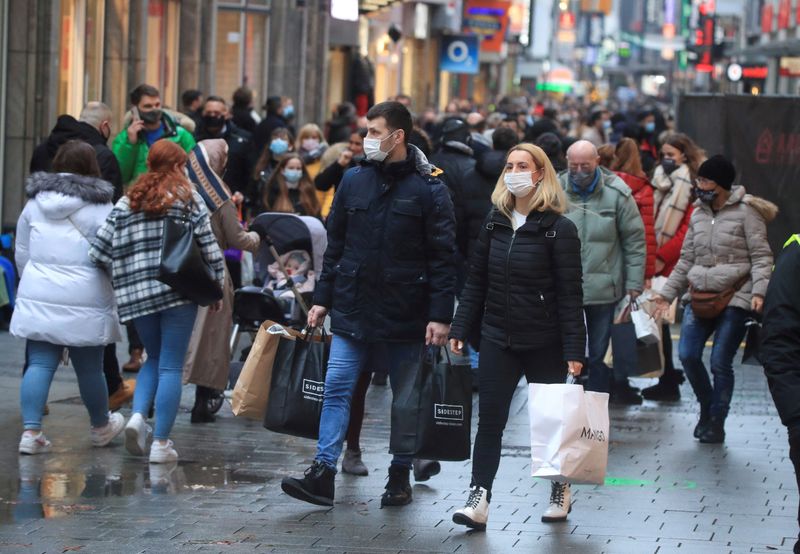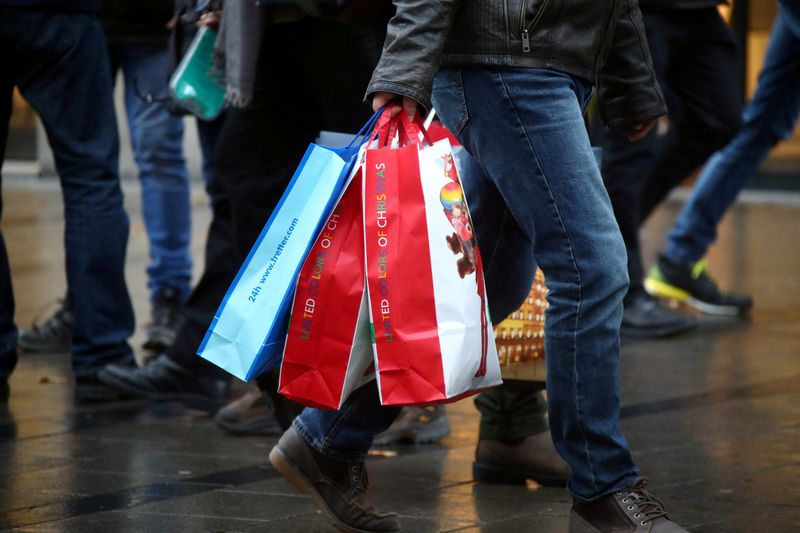By Maria Martinez
BERLIN (Reuters) -A drop-off in spending by inflation-hit consumers was one of the main reasons Germany fell into recession in the first quarter, even as other countries in the region managed to avoid it.
What's more, even with inflation starting to ease across Europe, the signs are that Germany's famously thrifty shoppers are not ready to spend their way out of recession - meaning the region's largest economy will have to look elsewhere for growth.
"Germans are cautious by nature," said Stephan Fetsch, Germany's head of consumer goods at KPMG. "Unless they feel safe about the future, they remain reluctant to spend."
German output shrank 0.3% in the first three months of the year to mark a second straight quarter of negative growth, notably weighed down by a 1.2% fall in household spending that contrasted with modest gains in France and Italy.
Its economy - described in a Sentix survey on Monday as "the biggest problem child in the euro zone" - is at a crossroads. Economists polled by Reuters are split on its second quarter fortunes: views ranged from a 0.3% GDP fall to a 0.5% gain, with a median forecast of 0.2% growth.
Household consumption, which like elsewhere accounts for broadly half of GDP in Germany, will be key to the outcome.
However, German consumer sentiment remains below its pandemic low in the spring of 2020 and the consumer barometer from the German Retail Association (HDE) shows a similar picture.
"A significant boost in private consumption is not expected in the coming months," the retail association said on Monday in the presentation of the barometer for June.
A number of factors are behind the subdued mood.
German consumers were hit particularly hard by high energy prices, being more dependent on Russia gas. Yet the government package wasn't as generous as in other countries, said Holger Schmieding, chief economist at Berenberg.
Carsten Brzeski, Global Head of Macro at ING, further noted that Berlin introduced policies to cap energy price rises later than those introduced in France and Italy, predicting that private consumption would continue to stagnate this year.
Despite inflation easing, German consumers remain extremely cautious and, used to years of access to low prices thanks to discount retailers, remain reluctant to spend at what many perceive as excessively high prices.
"Germany is the big retailers nation and the discount was born here," KPMG's Fetsch said. "The general hunt for the best value is a very German trait."
Now, an additional factor is starting to make itself felt: 375 basis points' worth of European Central Bank interest rate hikes since July 2022 which are making borrowing more expensive and saving more profitable.
Commerzbank (ETR:CBKG)'s senior economist Joerg Kraemer calculates that on average, five quarters pass between the first interest rate hike and the hit to the economy, suggesting a further contraction in the economy in the second half of this year.
"The German consumer has reasons to be scared and the result of all the economic uncertainty is usually an increase in precautionary savings," said Michael Burda, economics professor at Humboldt University Berlin.
The German government still hopes the economy can turn itself around this year.

For ING's Brzeski, the decisive factor will be Germany's exporting performance - a longstanding strength which is nonetheless often subject to sharp swings.
While latest trade data on Monday showed a surprise 1.2% rise in German exports in April, boosted by deliveries to a re-opening China, that far from made up for the sharp 6% plunge the previous month.
